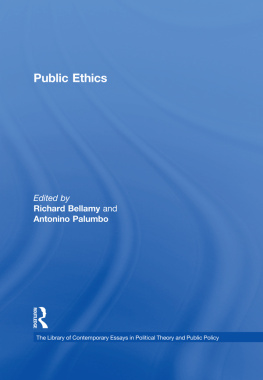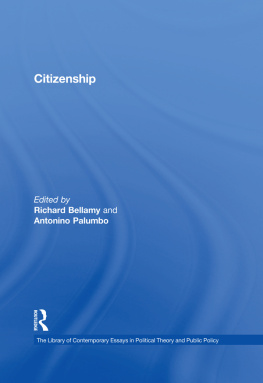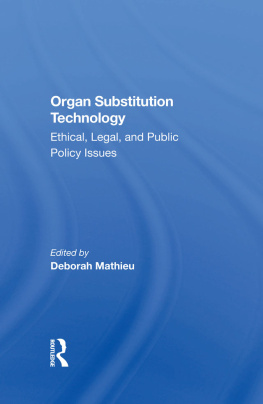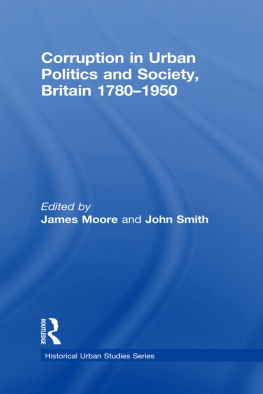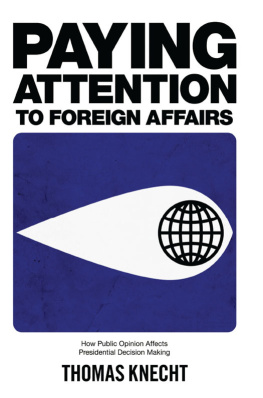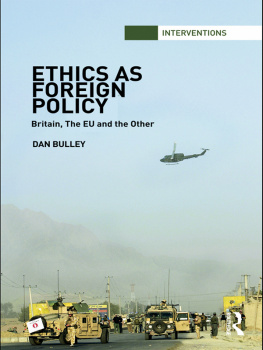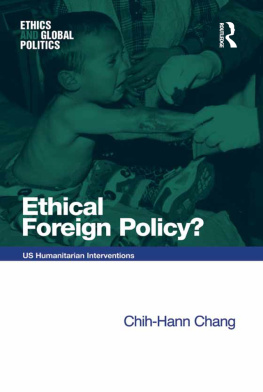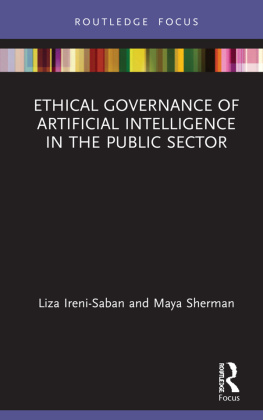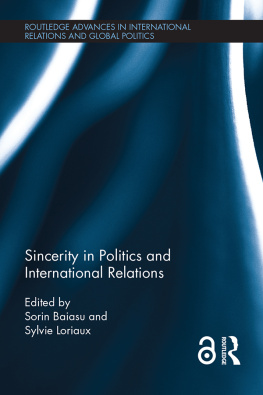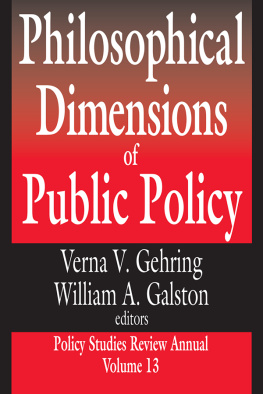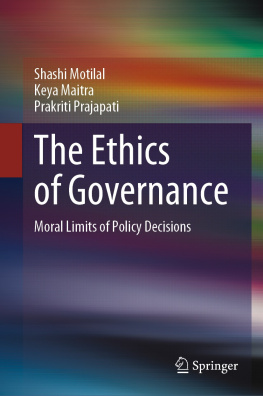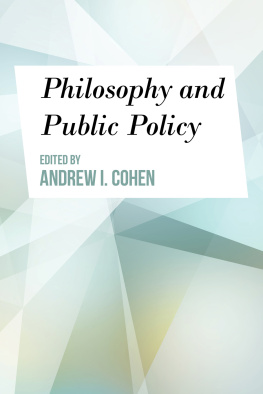First published 2010 by Ashgate Publishing
Published 2016 by Routledge
2 Park Square, Milton Park, Abingdon, Oxon OX14 4RN
711 Third Avenue, New York, NY 10017, USA
Routledge is an imprint of the Taylor & Francis Group, an informa business
Copyright Richard Bellamy and Antonino Palumbo 2010. For copyright of individual articles please refer to the Acknowledgements.
All rights reserved. No part of this book may be reprinted or reproduced or utilised in any form or by any electronic, mechanical, or other means, now known or hereafter invented, including photocopying and recording, or in any information storage or retrieval system, without permission in writing from the publishers.
Notice:
Product or corporate names may be trademarks or registered trademarks, and are used only for identification and explanation without intent to infringe.
Wherever possible, these reprints are made from a copy of the original printing, but these can themselves be of very variable quality. Whilst the publisher has made every effort to ensure the quality of the reprint, some variability may inevitably remain.
British Library Cataloguing in Publication Data
Public ethics. (Library of contemporary essays in
political theory and public policy)
1. Public administration Moral and ethical aspects.
I. Series II. Bellamy, Richard (Richard Paul) III. Palumbo,
Antonino.
172.2-dc22
Library of Congress Control Number: 2009938291
ISBN 9780754628095 (hbk)
The editors and publishers wish to thank the following for permission to use copyright material.
Cambridge University Press for the essays: Martin Hollis (1982), Dirty Hands, British Journal of Political Science , 12, pp. 385-98; Steven Lukes (2006), Liberal Democratic Torture, British Journal of Political Science , 36, pp. 1-16. Copyright 2006 Cambridge University Press; Dennis F. Thompson (1993) Mediated Corruption: The Case of the Keating Five, American Political Science Review , 87, pp. 369-81. Copyright 1993 The American Political Science Association; Frederick Schauer (2000), Can Public Figures have Private Lives?, Social Philosophy and Policy, 17, pp. 293-309. Copyright 2000 Social Philosophy and Policy Foundation; Jonathan Wolff (2006), Risk, Fear, Blame, Shame and the Regulation of Public Safety, Economics and Philosophy , 22, pp. 409-27. Copyright 2006 Cambridge University Press.
Connecticut Journal of International Law for the essay: Susan Rose-Ackerman, (1999), Political Corruption and Democracy, Connecticut Journal of International Law , 14, pp. 363-78.
Harvard Law Review Association for the essay: Arthur Isak Applbaum (1995), Professional Detachment: The Executioner of Paris, Harvard Law Review , 109, pp. 458-86.
New York University Law Review for the essay: Gerald J. Postema (1980), Moral Responsibility in Professional Ethics, New York University Law Review, 55, pp. 63-89.
North American Philosophical Publications for the essay: Vittorio Bufacchi (2004), Why is Violence Bad?, American Philosophical Quarterly, 41, pp. 169-80.
Springer Science and Business Media for the essay: Anthony P. Cunningham (1992), The Moral Importance of Dirty Hands, Journal of Value Inquiry, 26, pp. 239-50. Copyright 1992 Kluwer Academic Publishers.
Susan Rose-Ackerman for her essay: Susan Rose-Ackerman, (1999), Political Corruption and Democracy, Connecticut Journal of International Law, 14, pp. 363-78.
The Academy of Political Science for the essay: Dennis F. Thompson (1999), Democratic Secrecy, Political Science Quarterly, 114, pp. 181-93.
University of Chicago Press for the essay: Henry S. Richardson (2000), The Stupidity of the Cost-Benefit Standard, Journal of Legal Studies, 29, pp. 971-1003. Copyright 2000 The University of Chicago.
Wiley-Blackwell for the essays: Michael Walzer (1972), Political Action: The Problem of Dirty Hands, Philosophy and Public Affairs, 1, pp. 160-80; Henry Shue (1978), Torture, Philosophy and Public Affairs, 7, pp. 12413. Copyright 1978 Princeton University Press; Christine M. Korsgaard (1986), The Right to Lie: Kant on Dealing with Evil, Philosophy and Public Affairs, 15, pp. 32519; Mark Philp (1997), Defining Political Corruption, Political Studies, 45, pp. 436-62. Copyright 1997 Political Studies Association; Jonathan Quong (2004), The Scope of Public Reason, Political Studies, 52, pp. 233-50. Copyright 2004 Political Studies Association; Mark E. Warren (2004), What Does Corruption Mean in a Democracy?, American Journal of Political Science, 48, pp. 32813. Copyright 2004 by the Midwest Political Science Association; David Schmidtz (2001), A Place for Cost-Benefit Analysis, Nous, 35, pp. 148-71.
Every effort has been made to trace all the copyright holders, but if any have been inadvertently overlooked the publishers will be pleased to make the necessary arrangement at the first opportunity.
The normative appraisal of public policy both the process of policy-making and the substance of the policies themselves is becoming ever more salient for politicians, public officials, citizens and the academics who study them. On the one hand, the wider population is better informed than ever before about the activities of those that govern them and the consequences of their decisions. As societies have become more wealthy, so the expectations of citizens have grown and with it their tendency to criticise those who work on their behalf. On the other hand, though committed to the ideal of democracy, these same citizens have become ever more disillusioned with its actual working as a means for holding politicians and bureaucrats to account. In part, that disillusionment reflects the shift from government to governance both within and beyond the state, which has weakened or dispersed in complex ways the responsibility of politicians for many key areas of public policy. In part, it also reflects the desire for citizens for more individually tailored and particularistic forms of accountability that address their specific concerns rather those of the collective welfare. As a result, a whole new machinery for standard setting and monitoring political behaviour has developed. The purpose of this series is to explore and assess the normative implications of this development, appraising the efficacy and legitimacy of the procedures and mechanisms used, and the outcomes they aim to achieve.
These issues lie at the heart of many of the most exciting new areas of research and teaching in moral and political philosophy, politics, international relations and public administration, and law and jurisprudence. The essays chosen reflect this disciplinary mix and the interdisciplinary work that has arisen in this area as a result. The volumes will be suitable for Masters and Professional courses in public policy, political theory and international relations; jurisprudence, international and public law; and applied ethics and political philosophy; as well as a useful resource for scholars doing research or those teaching in these areas.
RICHARD BELLAMY
Professor of Political Science and Director of the School of Public Policy, UCL, University of London

